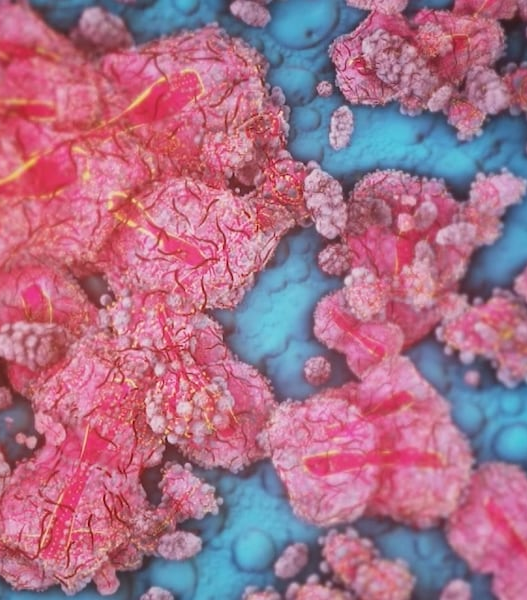Vitamin D is widely known to improve bone health, muscle strength and immune function, but there are also various advantages including cancer prevention.
A new study published in the nutrient journal shows that general vitamins are effective in preventing and treating colon rectal cancer.
Hungarian researchers conducted meta -analysis on 50 previous studies, including more than 1.3 million participants, focusing on the potential effects of vitamin D on cancer risks, immunity and inflammation.
It has been shown to reduce self -immune diseases.
“The most important discovery is that it plays an important role in the prevention and treatment of colon cancer,” said Semmelweis University’s associate professor at Budapest.

Vitamin D is widely known to improve bone health, muscle strength and immune function, but there are also various advantages including cancer prevention. (Istock)
“Our research clearly supports the strong correlation between 25-hydroxy vitamin D (the main form of vitamin D) and cancer results.”
Cancer patients with low vitamin D have poor prognosis.
Vitamin D has shown to reduce inflammation, promote the death of cancer cells, suppress tumor growth, and improve immune response.
Vitamin D deficiency associated with dementia in a particular group when the level is very low: Study
Varga said, “This mechanism has a great influence on pathology of colon cancer.
Studies have shown that vitamin D supplements improve survival rate among patients with high -quality colon cancer.
“The result suggests that the effect of vitamin D can rely on factors such as dosage, individual status and treatment periods,” Vargas added.

The main source of vitamin D is exposed to solar ultraviolet rays. (Istock)
The American Cancer Society (ACS) previously mentioned a study that vitamin D suggested that it could lower the risk of cancer, especially the colon rectal cancer.
“However, a large -scale study found that vitamin D supplements lowered the risk of colon polyps (preliminary cancer growth) or cancer,” ACS said on the website.
“The optimal dose should be adjusted to the individual’s health and the current vitamin D level.”
One important limit of research is that the study included in the analysis uses other vitamin D dosage and involves patients at various stages.
They demanded further studies to accurately determine the optimal dose and “treatment efficacy”.
Recommendations for Americans
Dr. Monika Fekete, a doctor of Semmelweis University, said, “Based on our research, an individual with a high risk of colon cancer can monitor vitamin D numbers and take 1000-4000 IU daily vitamin D supplements.
“The optimal dose should be adjusted to the individual’s health and the current vitamin D level.”
Click here to get the Fox News app
In the case of doctors, researchers propose to regularly measure and replenish vitamin D levels for prevention and treatment purposes.
“Vitamin D plays an important role in the treatment and prevention of colon rectal cancer, but further research is needed to determine the specific role of the optimal dose and genetic factors.”

One important limit of research is that the study included in the analysis uses other vitamin D dosage and involves patients at various stages. (Istock)
“Molecular mechanisms of vitamin D, such as tumor gene (mutant genes that can lead to cancer) and suppressing tumor progression, require additional scientific investigation.”
The doctor said that the effect of vitamin D is closely related to the patient’s condition, so the recommendation should be personalized.
Click here to join the Health Newsletter.
The main source of vitamin D is exposed to solar ultraviolet rays.
According to ACS, it can be obtained from the cause, including Fatty Fish and some mushrooms.

Some foods, including milk, orange juice and cereal, are strengthened with vitamin D. (Istock)
According to the above source, there are also vitamin D port shoes, including milk, some orange juice and cereals.
People can also increase the level by taking vitamin D supplements.
To see more healthy articles, visit www.foxnews.com/health
ACS said on the website, “Most Americans do not get enough vitamin D in the diet, and many people have low vitamin D in the blood.”
“The role of vitamin D is still an active area of research and discussion in lowering the risk of cancer, but it is better to avoid low vitamin D levels.”







































